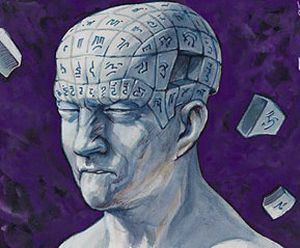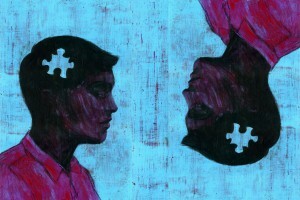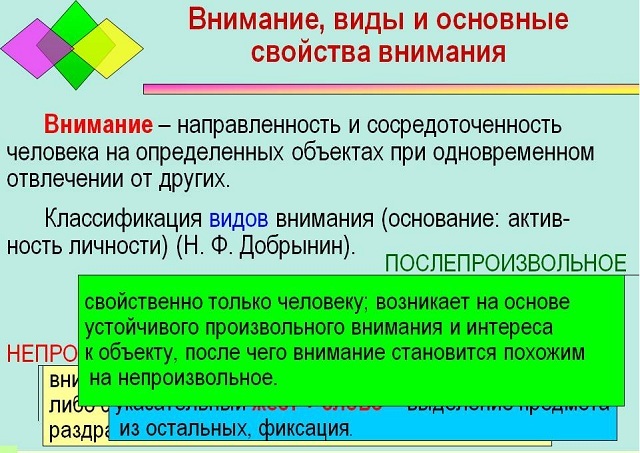 Patients who seek help from psychoneurologists often complain about memory loss for certain periods of time, which is usually associated with a traumatic situation or other external influences. In such cases, the so-called dissociative amnesia( synonyms: psychogenic, traumatic) is diagnosed.
Patients who seek help from psychoneurologists often complain about memory loss for certain periods of time, which is usually associated with a traumatic situation or other external influences. In such cases, the so-called dissociative amnesia( synonyms: psychogenic, traumatic) is diagnosed.
In such patients, social adaptation and the ability to work can practically not suffer. This mental disorder has a functional( psychogenic) and reversible character. Various types of memory loss are referred to the register of dissociative disorders( F 44.0 in ICD 10).
Contents
- Modern classification
- History of the diagnosis
- Causes and mechanisms of physiological memory failures
- Diagnosis and treatment of patients
- Psychotherapeutic effects
- Medical therapy
- Other activities
Modern classification
According to modern classification, psychogenic amnesia is a group of dissociative disorders, each of which is accompanied by a failurein one way or another.
Dissociative( conversion) disorders:
- dissociative amnesia;
- fugue;
- stupor;
- trance and state of mastery.
Dissociative disorders of movements and sensations:
- motility;
- convulsions;
- dissociative loss of sensory perception;
- mixed dissociation( conversion disorders).
Other dissociative( conversion) disorders: 
- Ganser's syndrome;
- multiple personality disorder;
- transient conversion disorders.
Previously, these conditions were considered in the circle of psychogenic( hysterical) diseases.
History of the diagnosis of
Scientific approach to assessing hysterical disorders was first used by R.Janet. He believed that hysterical symptoms are a manifestation of the "lower level" of mental activity and refers to the category of "psychological automatisms."
Hysterical personality inadequately( "automatically") react to stress, showing stereotyped emotions, thoughts, actions. He suggested that frightening events in the past caused similar forms of reaction.
Excessive nature of emotions, according to the author, prevents proper processing of information and leads to an unsuccessful formation of declarative memory. Uncontrollable intruding memories cause a fear of memories( "a phobia of memories").Such fear prevents mental synthesis of experience and causes these memories to separate( "dissociate") from ordinary consciousness, thereby reducing anxiety.
The idea of a "split" or "dissociation" of mental processes during hysteria formed the basis for the emergence of the term "dissociative disorders", which practically replaced the concept of "hysterical disorders."
Causes and mechanisms of physiological memory failures
Mechanisms underlying such memory impairments are not fully understood. The cause of mental illness can be various injuries.
One of the most frequent and poorly diagnosed disorders is dissociative identity disorder( multiple personality disorder) - "multiple personality".
 The causes of this condition in 90% are sexual traumas.
The causes of this condition in 90% are sexual traumas.
Psychological, physical or sexual violence experienced in childhood forms a desire for the child to separate from unpleasant memories. So there is one or more additional personalities( an imaginary friend, mom) with whom he is playing or communicating. The adult has the same parallel realities, which are activated in situations that threaten people. At times one patient can have up to 16 personalities.
Psychogenic amnesia is manifested by the inability to recall important personal information and is one of the main symptoms of this disorder. The number of missing facts is so great that it can not be explained by forgetfulness. At the same time, the patient does not have gross organic changes in the brain and problems with the intellect.
Memory abnormalities can affect events from the past, recent events and self-information.
In the diagnosis of identity disorders necessarily use psychological tests( MMID, SCID-D-R).At a result of 11 points - confirmed the existing amnesia. About the severe form speak at an indicator 31 - 50.
The psychogenic fugue is the reaction of the flight of a person, which manifests itself as a temporary loss of memory. The patient leaves his habitual location. Can leave and start a new life. He adapts to his new essence, because he does not remember the former.
These conditions do not occur often. They are caused by the influence of severe stress on the background:
- wartime injuries;
- natural disasters;
- identity crisis in adolescents.

Altered personality almost always leads to psychogenic amnesia
In this condition, the patient's volume of consciousness is sharply narrowed, only necessary emotional connections with the outside world and a partially new self-perception are preserved. Fugues suddenly arise, and suddenly they pass.
Biographical( or autobiographical) is a rare and most difficult variant of hysterical amnesia due to the large volume of mnestic fallout.
In this disease, psychological symptoms are manifested by the disappearance of memory about the events of a past life and one's personality.
Other cognitive impairments are absent, formal intelligence, professional skills, general knowledge are retained.
Diagnosis and treatment of patients
Clinical examination and diagnosis of violations is carried out in several stages: 
- is conducted a survey and examination of the patient;
- psychodiagnostics: testing;
- laboratory examination( for blood and urine tests);
- instrumental examination: EEG, MRI of the brain and others( ECG, Roger OGK);
- specialist consultation if necessary to clarify somatic diseases.
Treatment can be performed on an outpatient basis. In the presence of danger for the patient or others, the impossibility of self-service, the lack of conditions for treatment outside the hospital - shows hospitalization.
The whole complex of measures is carried out:
- specific therapy;
- nonspecific treatment( strengthening, tonic);
- psychotherapy;
- rehabilitation.
Psychotherapeutic treatment
Psychotherapy includes the following directions:
- Individually oriented is aimed at determining the increase in adaptive abilities, the patient's
 has an understanding of the causes and consequences of severe experiences and features of the relationship system. Correction of inadequate reactions and behaviors. Logical persuasion of the patient. The formation of an adequate relation to the disease. Classes are conducted after the severity of painful experiences is removed both individually and in groups with a frequency of 3 to 5 times a week, lasting for 4-6 weeks of sessions under the supervision of a doctor, and then independently for six months or more.
has an understanding of the causes and consequences of severe experiences and features of the relationship system. Correction of inadequate reactions and behaviors. Logical persuasion of the patient. The formation of an adequate relation to the disease. Classes are conducted after the severity of painful experiences is removed both individually and in groups with a frequency of 3 to 5 times a week, lasting for 4-6 weeks of sessions under the supervision of a doctor, and then independently for six months or more. - Hypnotherapy focuses on focusing on relaxation, on the sedation of emotional disorders, improving mood. Spend daily, only 8 - 10 sessions.
- Autogenous training sessions of develop and strengthen the process of self-regulation, self-control and self-control. Spend 10-15 sessions a day under the supervision of a doctor, and then independently for 3 to 4 months.
- Family psychotherapy - stabilization of relationships in the family.
Drug therapy
Drug treatment involves the appointment of the following drug groups:
- short courses of treatment of tranquilizers for the cessation of acute manifestations of the disease;
- is prescribed neuroleptics for gross behavioral disorders, impaired consciousness;
- antidepressants .
There are fewer emotional disturbances in hospital treatment. There is a reduction of acute and affective neurotic reactions, improvement of the quality of life of the patient, mitigation of personality changes.
 Outpatiently it is possible to achieve a reduction in emotional disturbances and negative effects of psychogenic factors.
Outpatiently it is possible to achieve a reduction in emotional disturbances and negative effects of psychogenic factors.
There is a reduction of neurotic disorders and affects, there is a change in the quality of life and the patient's behavior for the better.
Duration of treatment - 3 - 6 weeks.
Possible side effects with excessive use of medications:
- Cholinergic syndrome ( dry mouth, visual impairment, cognitive impairment) occurs with the use of tricyclic antidepressants. Treatment - withdrawal of the drug, the appointment of a selective serotonin reuptake inhibitor or dual action antidepressant.
- Excessive sedation of - it is necessary to reduce the dose of antidepressant, which caused sedation with the further use of another drug without sedation.
- Orthostatic hypotension - reduction of dosages of medicines.
- Sexual dysfunction of is most often observed with tricyclic antidepressants and selective serotonin reuptake inhibitors, - it is possible to switch to a drug that does not cause sexual dysfunction.
- Cardiovascular disorders - conduction disorders, hypotension - a change of medication is necessary.
- Serotoninergic syndrome - mental disorders to the extent of loss of consciousness, agitation, sweating, diarrhea, vomiting, trembling, hyperreflexia, fever, etc. arises as a consequence of a combination of antidepressants. It is necessary to reduce the dose or complete cessation of treatment. The greatest risk of this complication occurs with the simultaneous administration of MAO with other antidepressants. Because of this, it is strictly prohibited to use these groups of funds at the same time.
Other activities
Food is adjusted: dietary restrictions, leading to a decrease in body weight, physiotherapy exercises with increasing body weight.
The mode of work and rest is determined individually, taking into account the achieved level of social functioning and according to the current legislation.



